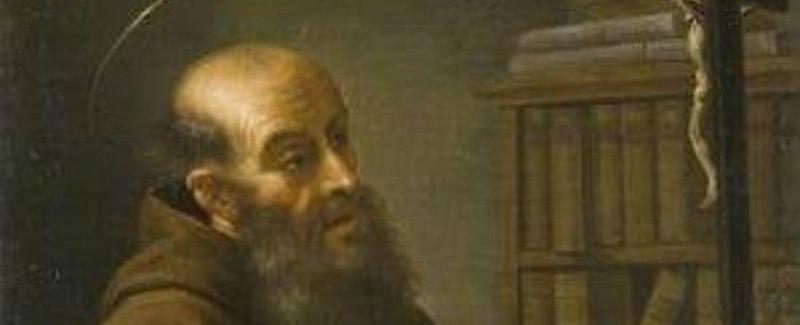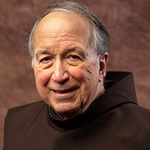Saint Lawrence of Brindisi: The Capuchins’ Renaissance Man

On July 21, the Franciscan family, with the rest of the Church, celebrates the memory of St. Lawrence of Brindisi (1559-1619), who was been described as "the Capuchins' Renaissance man."
Given an excellent education
Lawrence was born Giulio Cesare Russo in 1559 in Brindisi, Italy, where his father, a Venetian, was a prosperous merchant. He lost his parents at an early age and was raised by an uncle in Venice and given an excellent education.
Gifted with facility for languages
He entered the Capuchin reform of the Franciscan friars in Venice at age 16 and given the name Lawrence. Gifted with a remarkable facility for languages, Lawrence devoted himself to the study of Scripture. Besides mastering Greek, he was one of the few scholars of his age to be totally fluent in Hebrew (so much so that rabbis thought he must have been a Jew who had converted to Christianity). He also became proficient in many modern European languages of the time as well.

Capuchin friars were noted for their service in caring for the sick of Venice during a major outbreak of the plague that ravaged the city in 1575-76; afterward, the Republic of Venice commissioned the architect Palladio to design this votive church dedicated to the Holy Redeemer on the Giudecca Island in thanks for the deliverance of the city. When it was completed in 1593, the Capuchins were placed in charge of the church, a vivid testimony to their rising pastoral role in the Church.
Able to relate well to people
In addition to teaching Scripture to his brothers and becoming a noted preacher, Lawrence possessed the ability to relate well to all kinds of people, a skill that led his Capuchin brothers to call him to leadership roles, including novice master, provincial minister (at age 31!), service on the General Council, and eventually Vicar General (1602-05). As leader of the Capuchins, he greatly expanded the Order in Germany and Austria.

In 1601, the pope named Lawrence as chaplain to the Imperial Army; bearing only a crucifix, Lawrence was asked to lead the heavily outmanned Christian troops to victory against the Ottoman Turks at Székesfehérvár, Hungary.
Declared a Doctor of the Church
In the latter part of his life, Lawrence was asked to serve as ambassador of the Pope to several royal courts. While on one of these missions, he died in Lisbon, Portugal, on his 60th birthday, July 22, 1619. Lawrence was canonized in 1881. His works, finally edited in the 1950s, comprise 15 large Latin volumes, mostly sermons. Pope John XXIII declared him a Doctor of the Church in 1959.

The remains of Saint Lawrence rest in the Poor Clare monastery in Villafranca del Bierzo, Spain.
Based his teaching on classic Franciscan theology
Saint Lawrence firmly based his teaching on classic Franciscan theologians such as Bonaventure and John Duns Scotus. He wrote:
God is love, and all his operations proceed from love. Once he wills to manifest that goodness by sharing his love outside himself, then the Incarnation becomes the supreme manifestation of his goodness and love and glory. So, Christ was intended before all other creatures and for his own sake. For him all things were created and to him all things must be subject, and God loves all creatures in and because of Christ. Christ is the first-born of every creature, and the whole of humanity as well as the created world finds its foundation and meaning in him. Moreover, this would have been the case even if Adam had not sinned.
Focused on the Incarnation
Dominic Monti, OFM
Professor of Franciscan Research in the Franciscan Institute of St. Bonaventure University
Dominic V. Monti, OFM, is a Franciscan Friar of Holy Name Province (USA) and currently professor of Franciscan Research in the Franciscan Institute of St. Bonaventure University. He devoted the greater part of his ministry to teaching the History of Christianity, in particular the history of the Franciscan movement. He has contributed two volumes to the Works of St. Bonaventure series and is author of Francis & His Brothers, a popular history of the Friars Minor.

